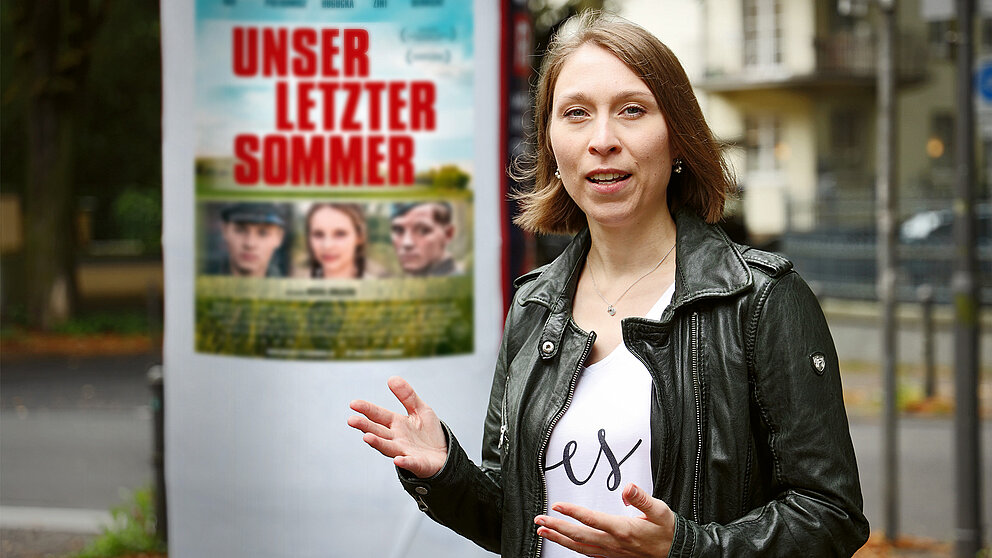Jump to the content
- {{#headlines}}
- {{title}} {{/headlines}}
It is now nearly two years since I completed my doctorate entitled “Moving Memories”. “Our Last Summer” is the name of one of the films I analysed for my thesis. In fact, I spent several summers in the library working on it. It deals with the portrayal of Germans and Poles in films made in both countries featuring the darkest chapter of our common history: the Second World War and the German occupation of Poland.
I partly chose the subject for personal reasons. My father is German, my mother comes from Poland. Like so many others, she left the country in 1982 when Lech Wałęsa was interned and martial law imposed. My mother never told me much about Poland. She wanted to put this phase of her life behind her and on no account be perceived as Polish. And she wanted this for me even less. At some stage, I myself started to become interested in the Polish part of my family and my own identity. I discovered that my grandfather had been a forced labourer in Hanau in Germany in the Second World War. My grandmother, by contrast, came from a family of Old Believers of Russian descent who had found a new home in Masuria in the 19th century. I then went to university in Kraków and travelled Poland on the trail of my family. I discovered a very colourful and diverse country: Jarocin, Poznań and my grandmother’s home village of Wojnowo.

Humboldt Colloquium Poland
Follow the virtual Humboldt Colloquium Poland on Twitter!
At the Foundation, I am responsible for our network in Central and Eastern Europe. In September, an online Humboldt Colloquium will take place with Polish Humboldtians and other academics. It will form part of the 30th anniversary of the German-Polish Friendship Agreement and will focus on the situation of young researchers in Poland. At meetings like that, I always feel that in the Humboldt Network, the values of science form a connection beyond the notion of the homogeneous national state. In this way, we can confidently look forward to a shared future.

